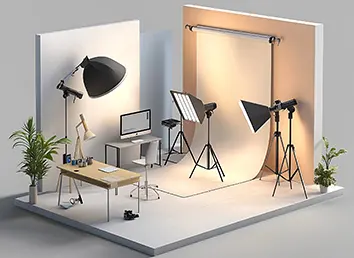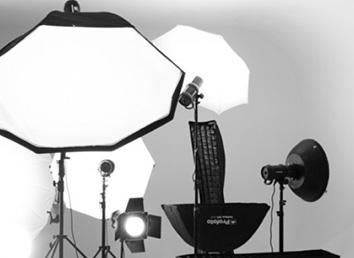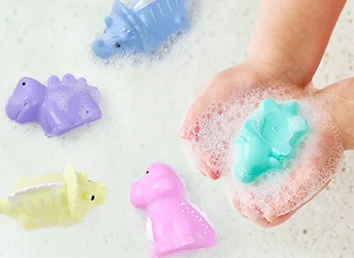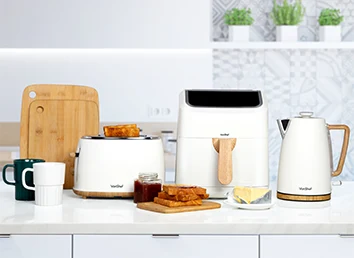13 Tips on How to Eliminate Glassware Reflections
Author: CNPP / Jeery
Date Created: 2024-08-30 17:51
Tips for Eliminating Glass Reflections in Product Photography 1:
Translucent white paper or white gauze, etc. To make a tent, the subject will be surrounded, only in front of a hole in the mouth, so that the lens from the mouth of the aperture aligns with the subject to shoot.
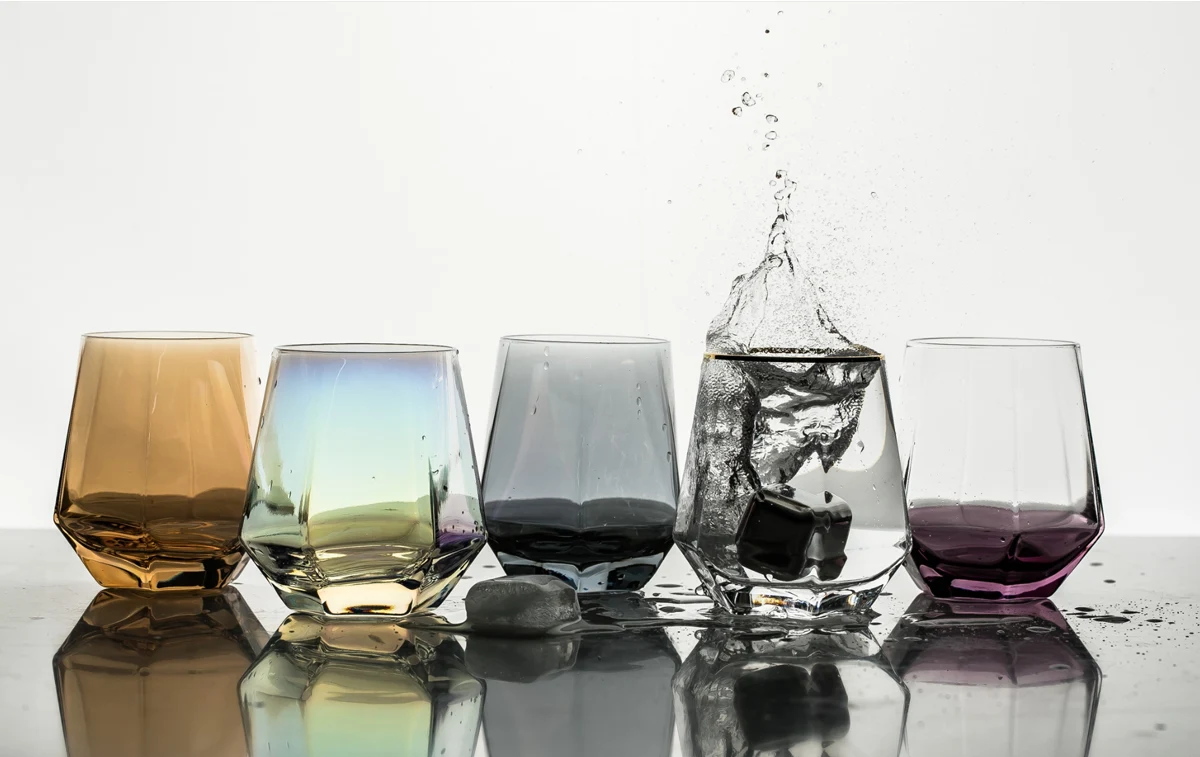
Tips for Eliminating Glass Reflections in Product Photography 2:
In front of the bulb plus a layer of sulfuric acid paper, so that the light is soft. You can also add a reflective umbrella, or use white paper as a reflector, and hit the light on the reflector, using reflective shooting.
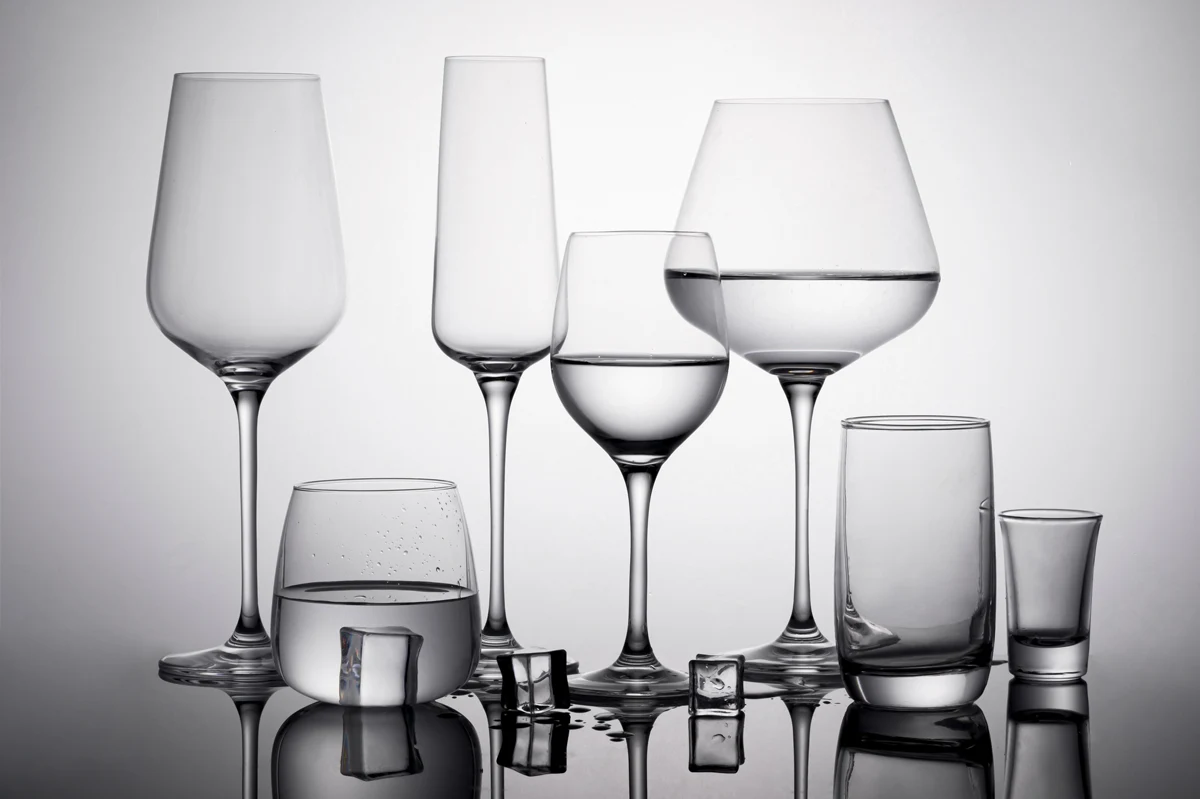
Tips for Eliminating Glass Reflections in Product Photography 3:
The background should be as simple as possible. The background and the subject should not be too close to the tone. When shooting color film, it is not advisable to use too smoky colors for the background. Because the background color light will be reflected on the subject, affecting the performance of the subject.
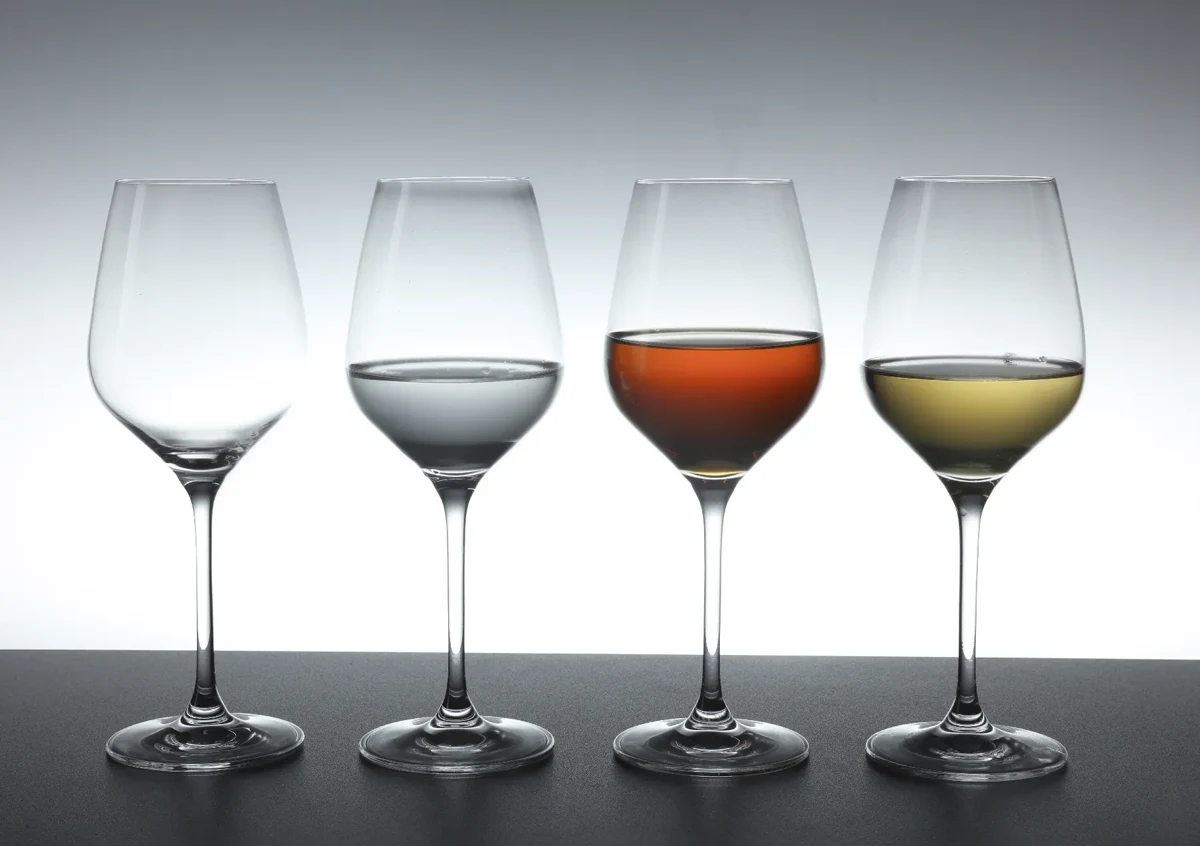
Tips for Eliminating Glass Reflections in Product Photography 4:
The use of a polarizer can also weaken or eliminate reflections, the polarizer set in front of the lens slowly rotates until the viewfinder sees reflections weakened or disappeared.
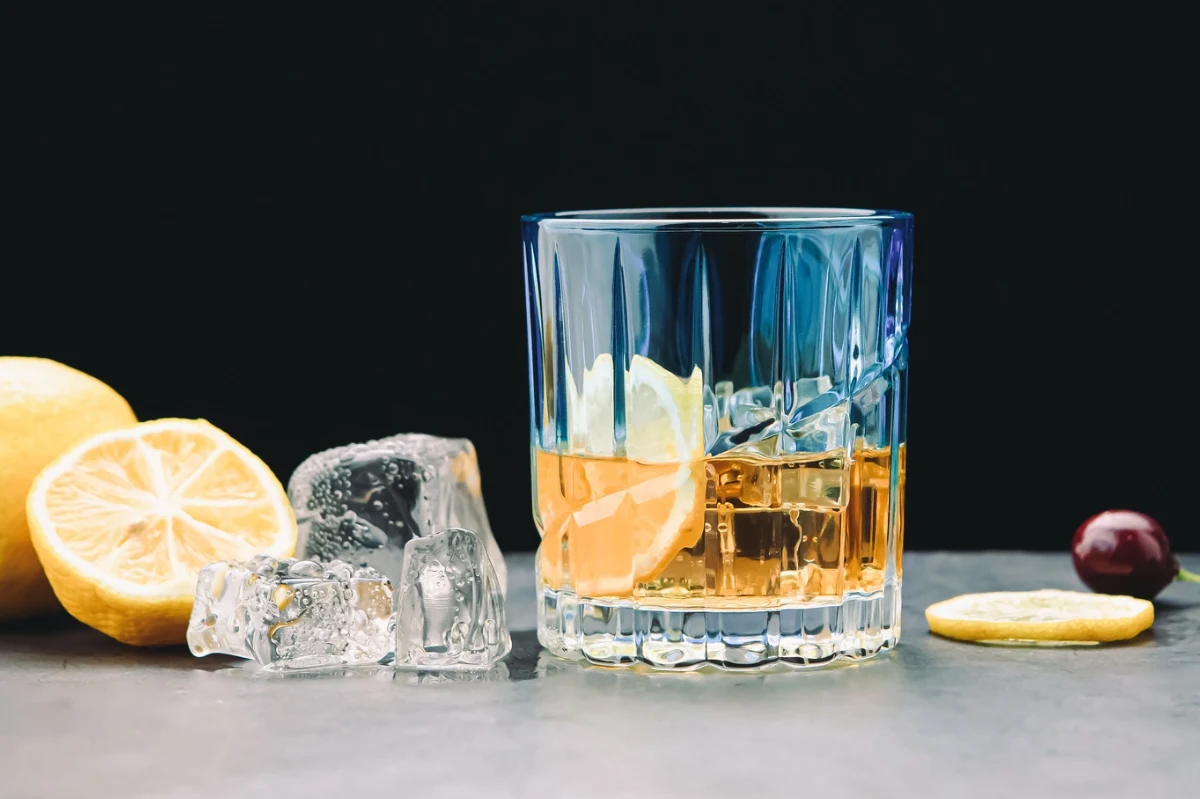
Tips for Eliminating Glass Reflections in Product Photography 5:
Use a spray or figure soft soap. When shooting, spray the spray on the bright spot, bright spots can be eliminated. In the cold, you can also open the shutter, aimed at the subject of gas, so that the surface of the fog is white, so you can also eliminate the bright spots. There is also a map of the soft soap method, the alkali-free soft soap diluted, thinly coated in bright spots, you can also get the effect of eliminating the spot. Use to pay attention to the surface of the subject and the soap foam clean, do not see traces in the photo.
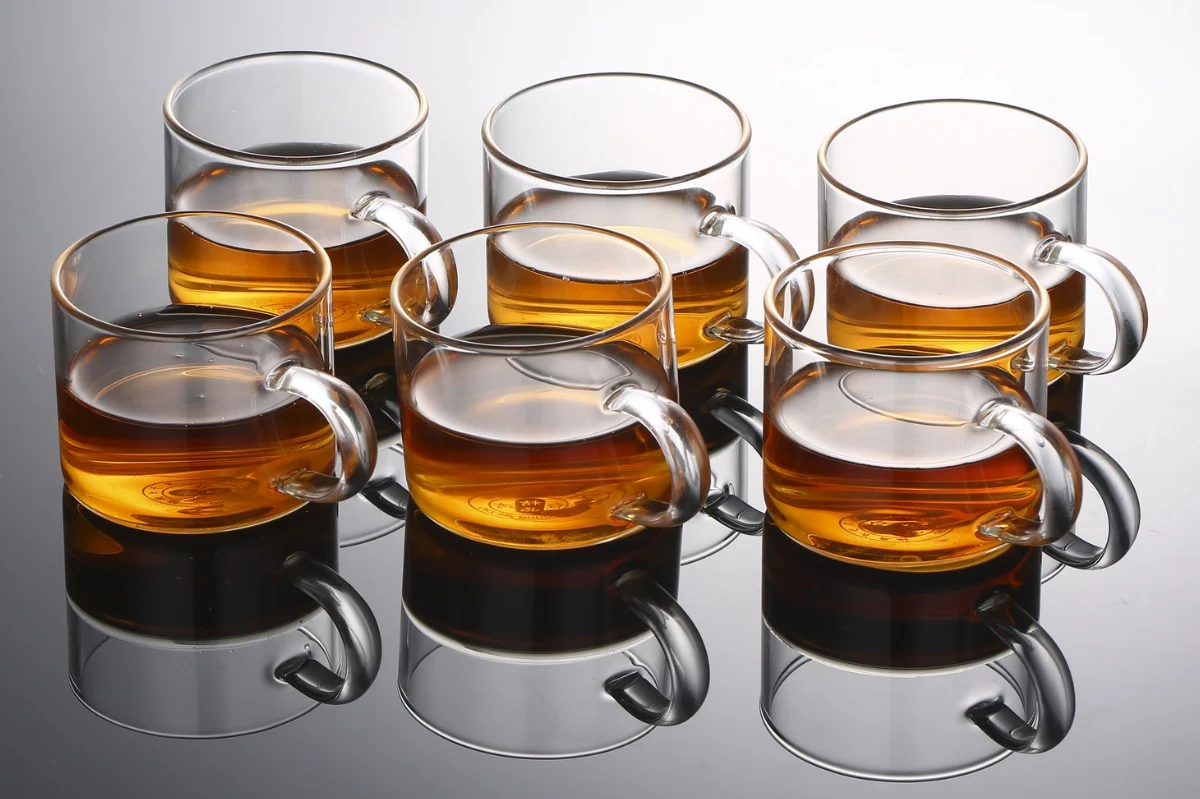
Tips for Eliminating Glass Reflections in Product Photography 6:
Use clothing and other cover reflections
This is the most no-brainer approach, with fabrics and softer clothing wrapped around the lens. If there are curtains or something indoors, you can pull over to block most of the reflections, if the cover is black, the effect is better.
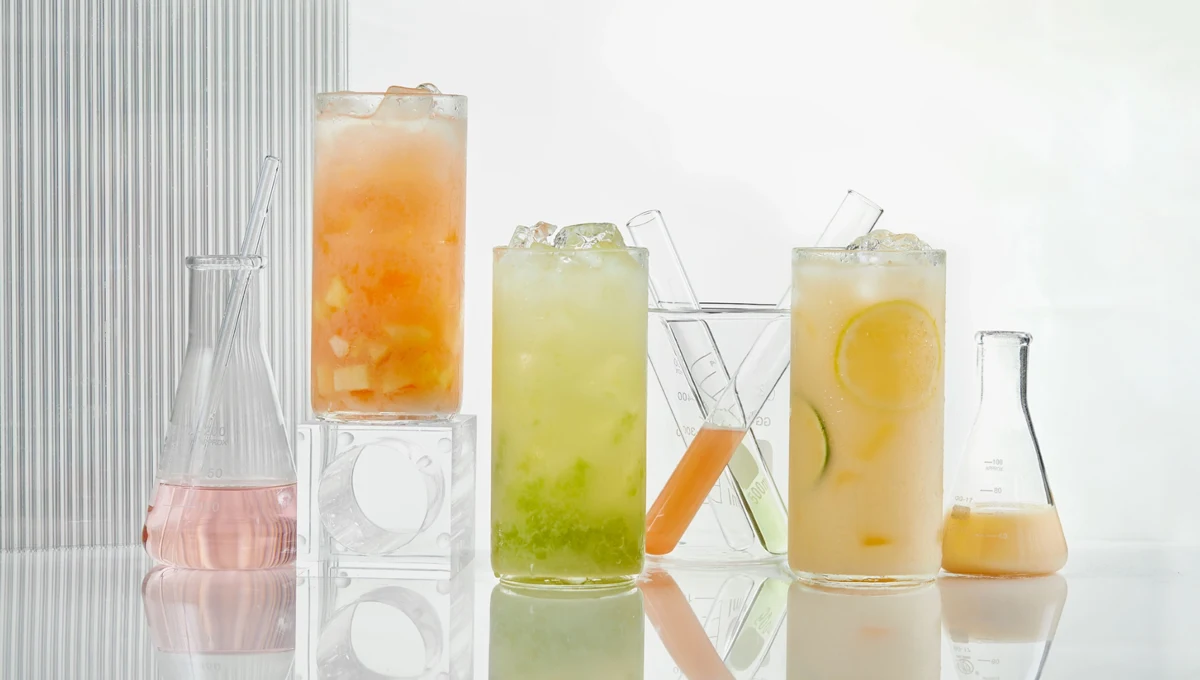
Tips for Eliminating Glass Reflections in Product Photography 7:
Add a polarizer in front of the lens
The most effective way is to bring a polarizer in front of the lens, and rotate the angle will find not only the glass but even the reflections of the scene are filtered out, and the picture will become clear. However, some of the glass itself will have a special treatment, in the polarizer will be presented under the spot and so on, to pay special attention to such cases, can no longer use the polarizer.
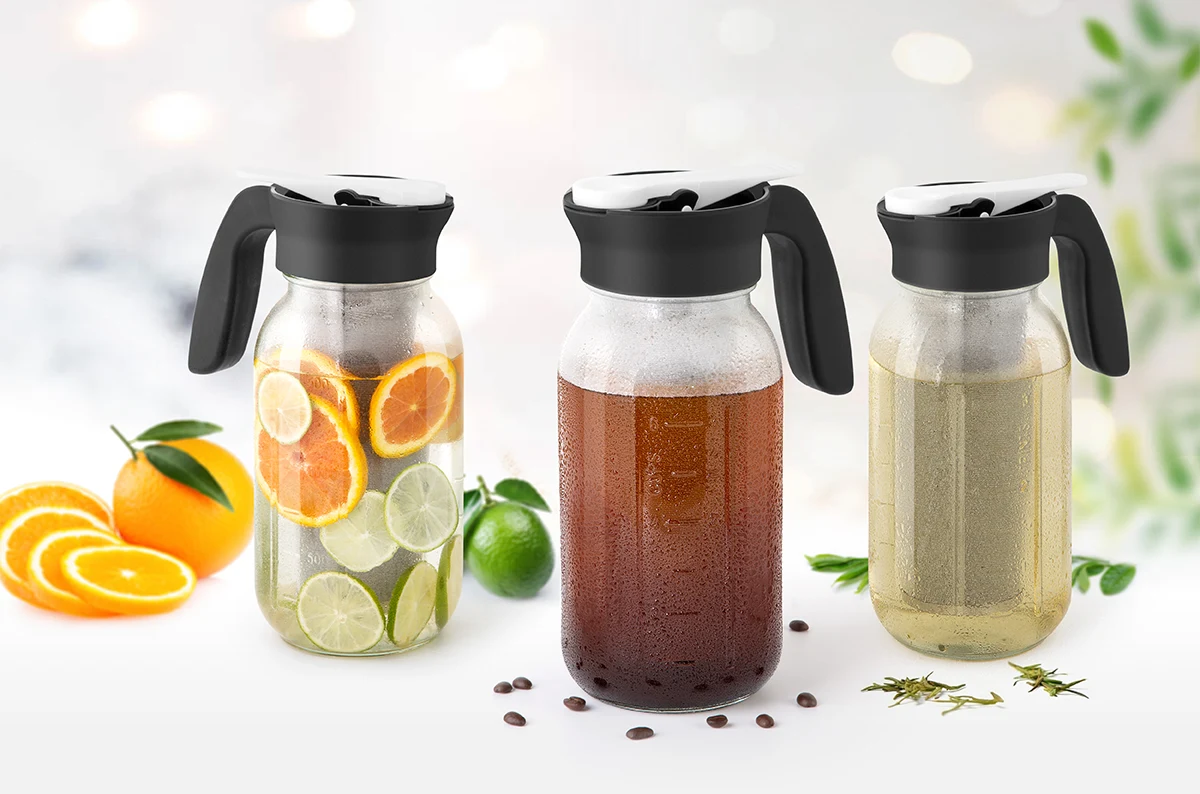
Tips for Eliminating Glass Reflections in Product Photography 8:
Avoid using a wide-angle lens
In the absence of polarizer assistance, try not to use too wide-angle lens. Because of the depth of field, the stains on the glass will be relatively easy to enter the mirror, the same will income more reflections.
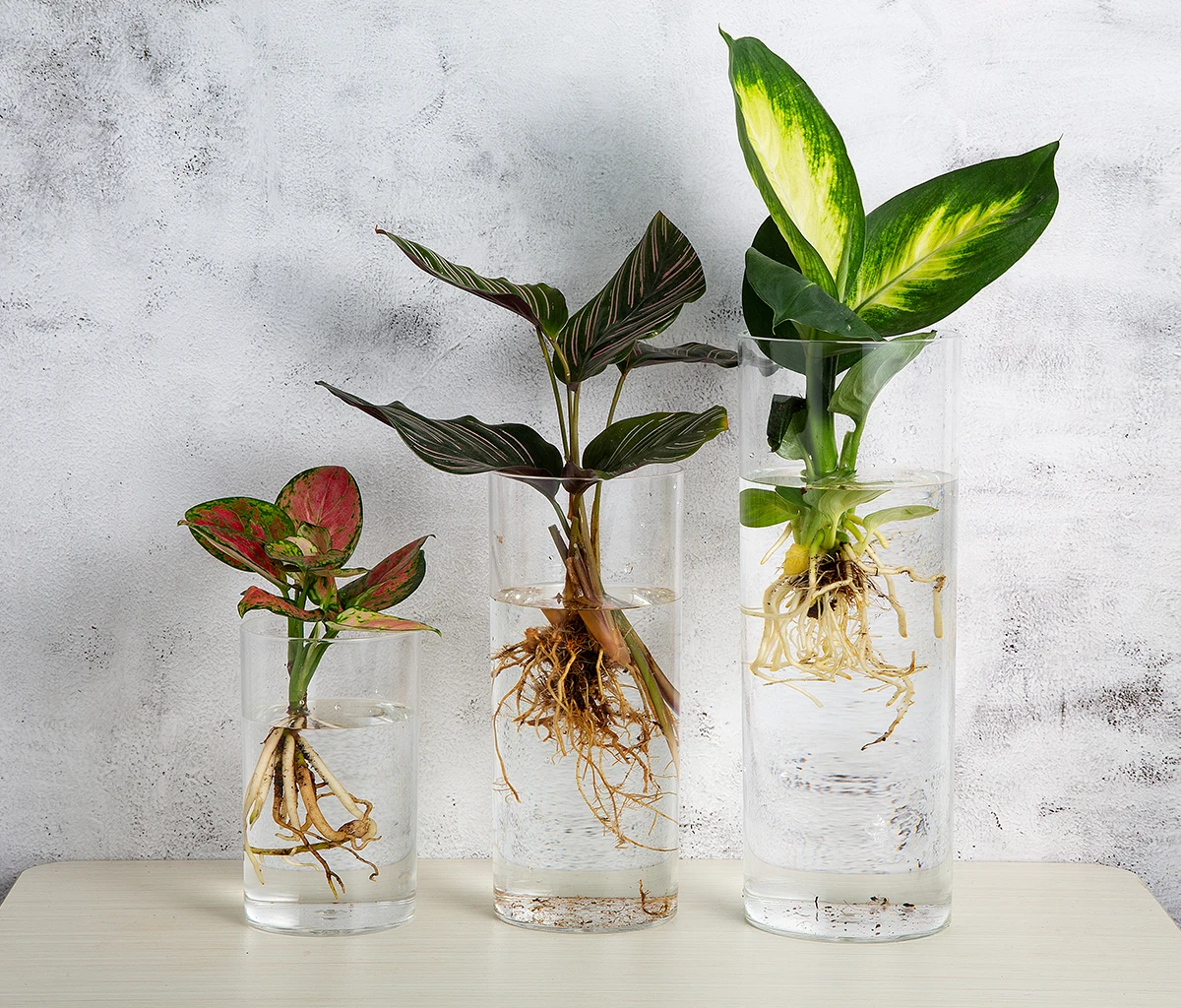
Tips for Eliminating Glass Reflections in Product Photography 9:
Use a longer focal length lens with a larger aperture to eliminate reflections on glass products
You can use a slightly longer focal length lens, coupled with a slightly larger aperture, close to the lens of the glass will be defocused away, whether it is reflections or stains. But this kind of vignetting does not have good control, easy to make the subject blurred, Using this method can be more to try.
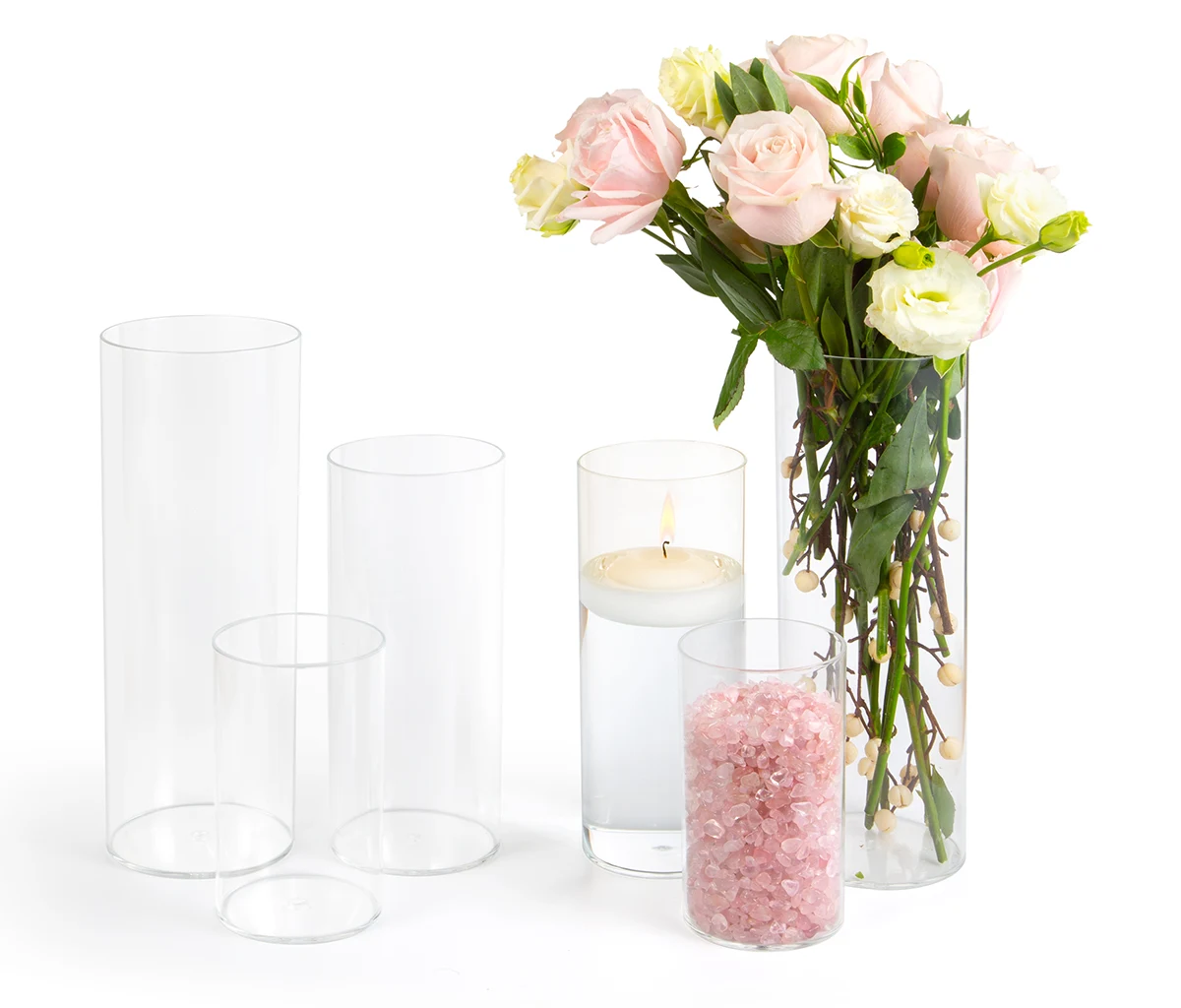
Tips for Eliminating Glass Reflections in Product Photography 10:
looking for the weakest angle of reflection
Mastery of good angle control can also effectively avoid reflections. You can move the body left and right, adjusted to the weakest angle of reflection.
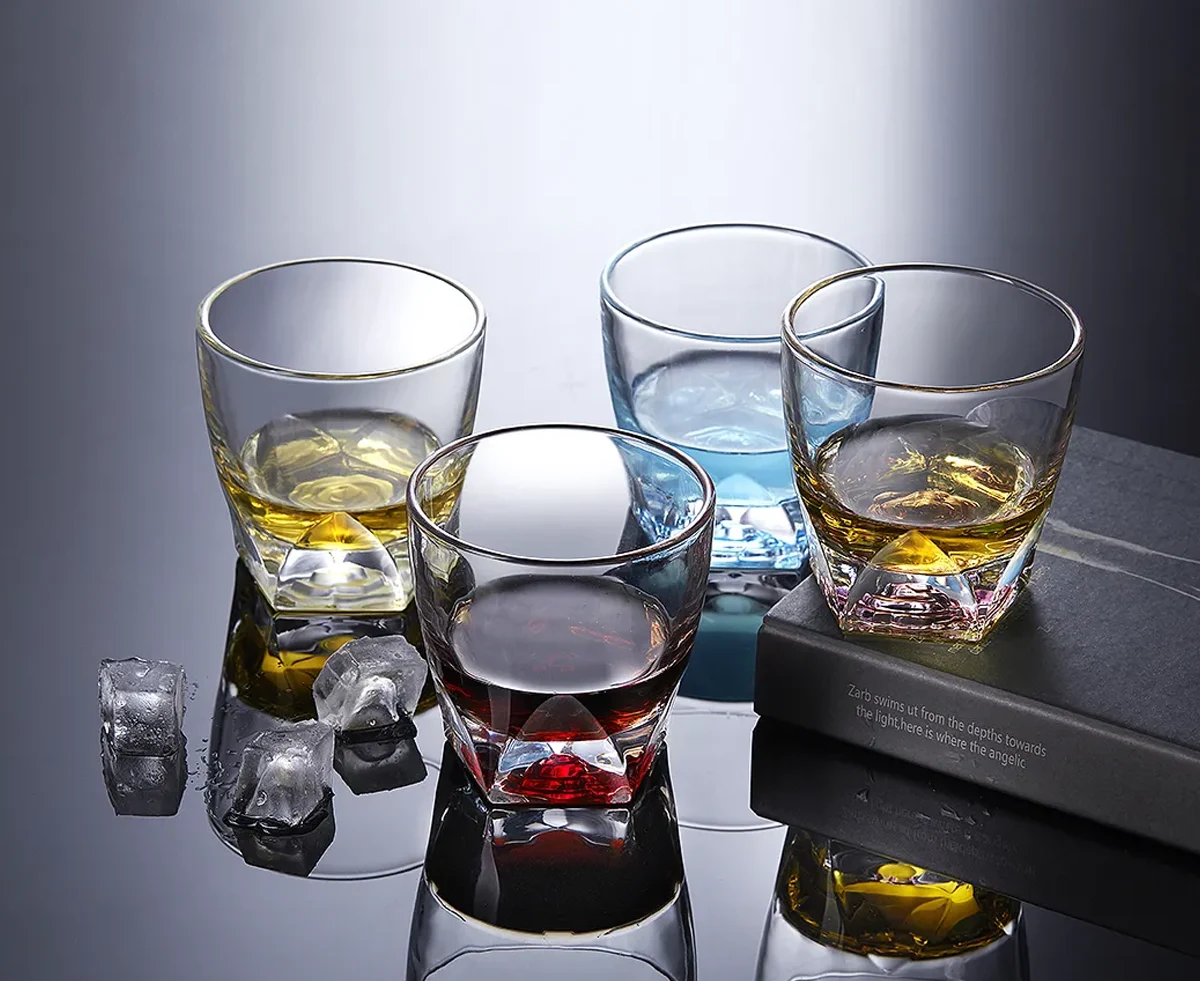
Tips for Eliminating Glass Reflections in Product Photography 11:
Stick the front of the lens on the surface of the glass.
If the above methods have not achieved satisfactory results, then the most simple and effective is to stick the front of the lens on the glass surface, which can minimize the reflectivity. Even with a super wide-angle lens, this method can get the clearest picture possible. Just be careful of bumps and collisions if you are in a vehicle. When the lens is affixed to the glass, the lens angle of view will be limited to adjust the angle will make the gap between the two, at this time you can use a black flannel or something to cover the gap.
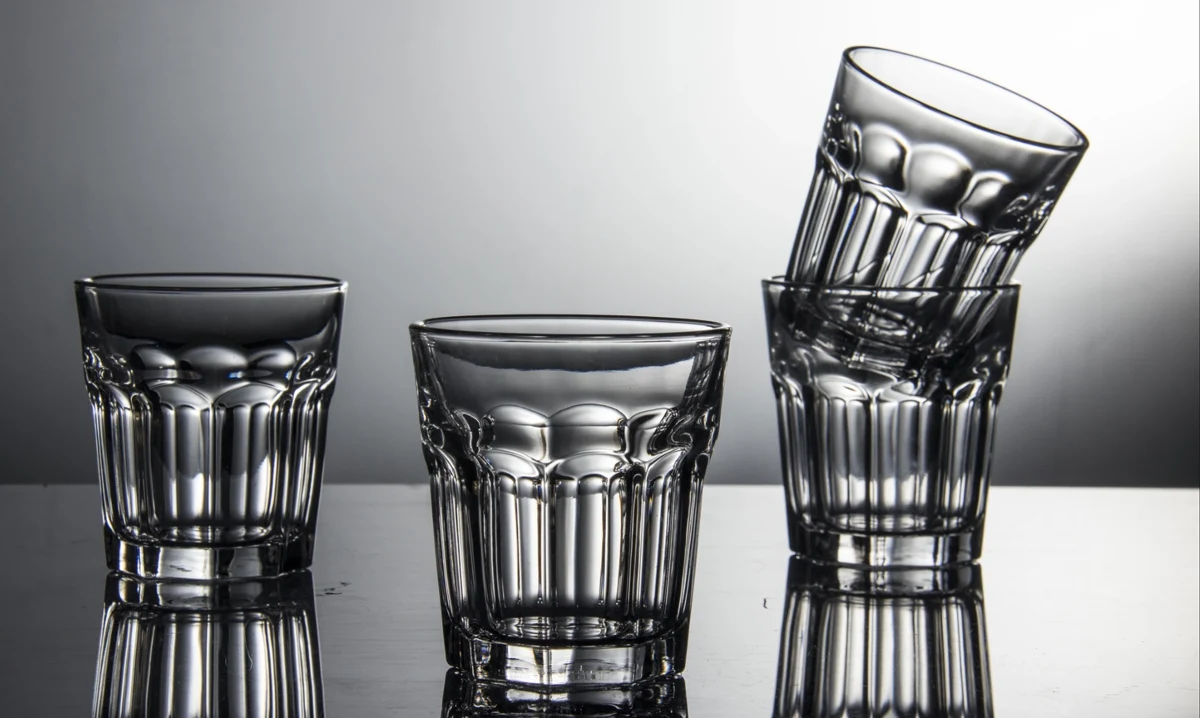
Tips for Eliminating Glass Reflections in Product Photography 12:
Turn off the flash
Shooting through the glass to turn off the flash, no matter which method is used, the flash will not improve the quality of the picture. Instead, it will greatly increase the reflection.
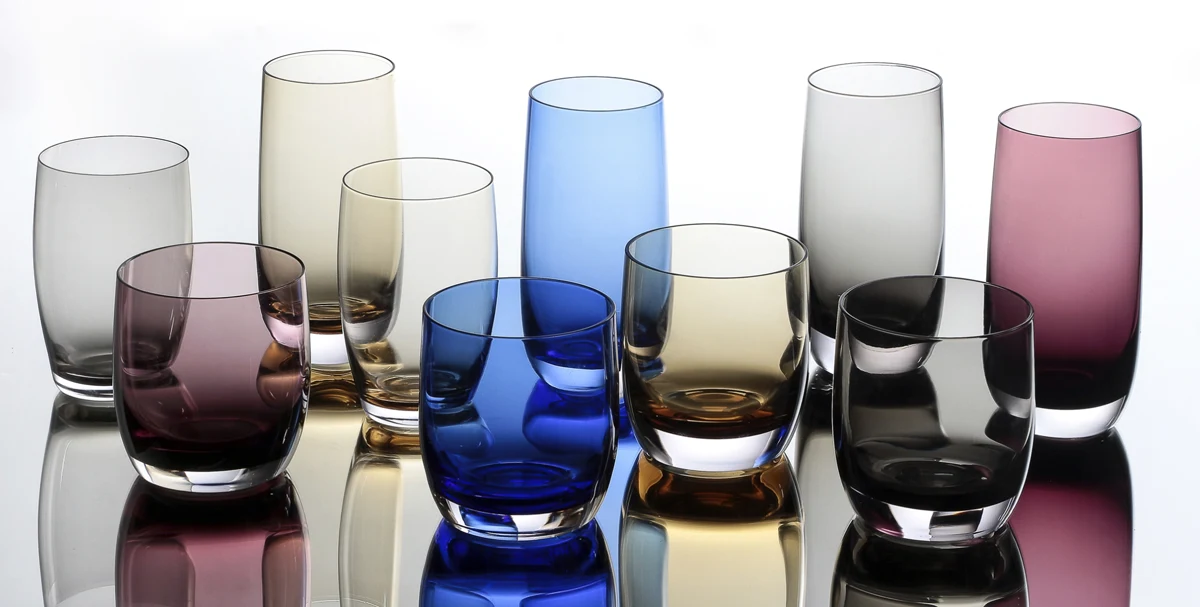
Tips for Eliminating Glass Reflections in Product Photography 13:
Avoid Indoor Light Sources
Indoor night shooting through the glass to avoid indoor light sources, to maintain a light-free state, to avoid reflections after as close as possible to the glass window, and then regular shooting can be done.
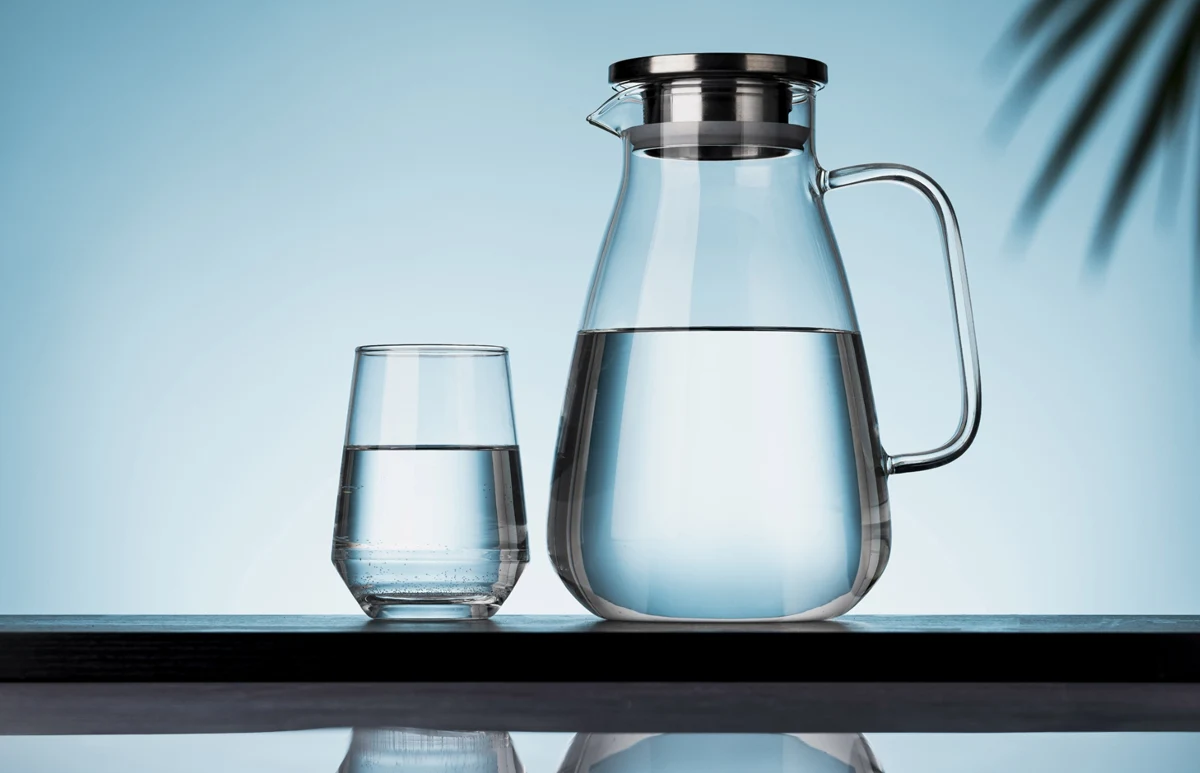
In conclusion, glass product photography is a continuous learning process and photographers can only improve their skills and techniques through experimentation and practice. Mastering glass product photography requires a combination of technical skills, attention to detail and creativity. Photographers should keep experimenting and adjusting the methods of glass product photography and different lighting, and they will be able to produce stunning product images that showcase the characteristics and value of glass products.


